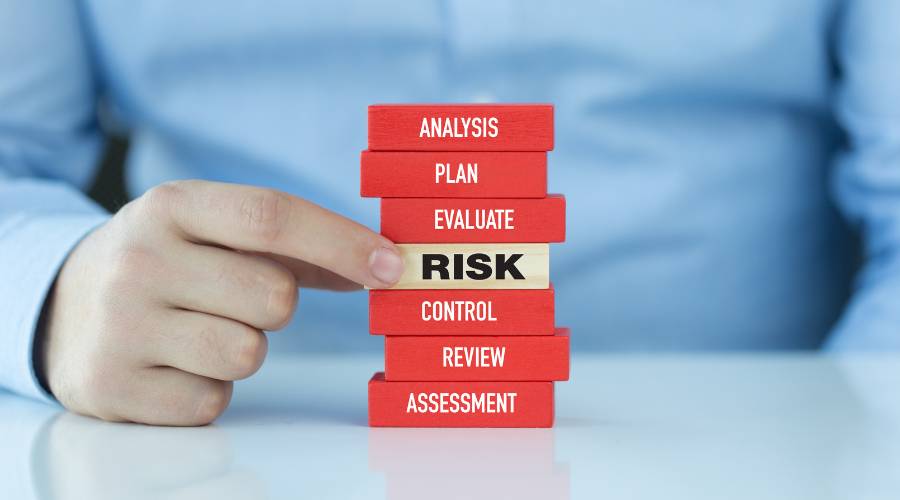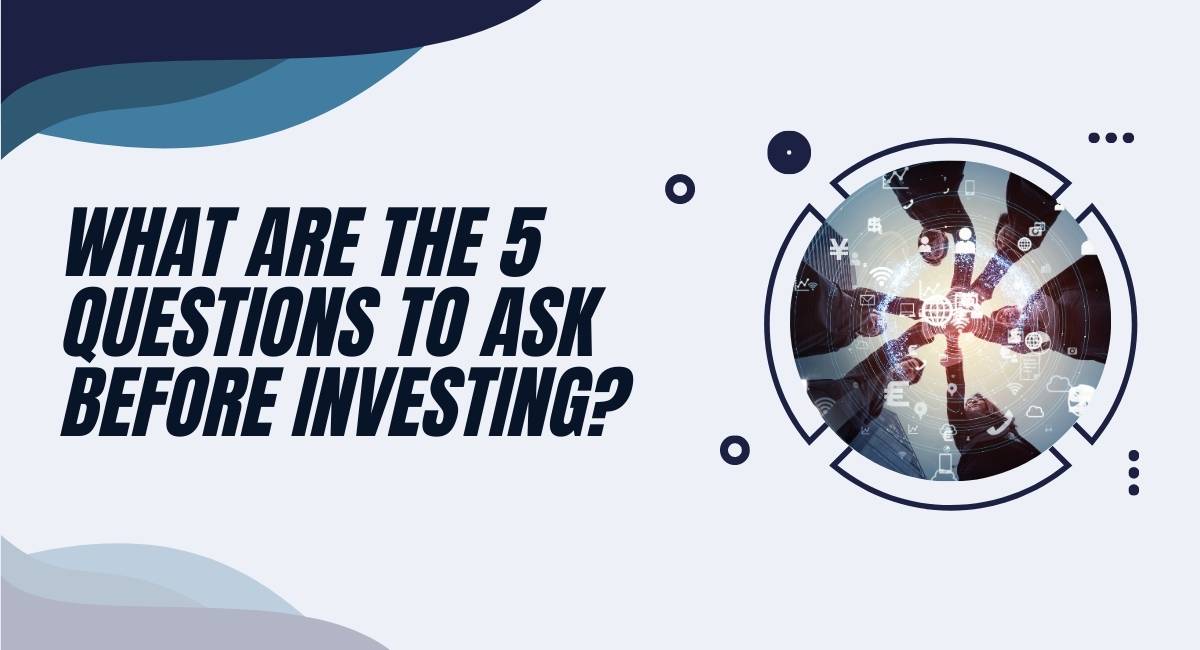If you are contemplating an investment in noble gold but are uncertain about where to begin, this article presents valuable insights on the benefits, types, and risks associated with investing in noble gold.
From portfolio diversification to hedging against inflation, noble gold represents a secure investment option that carries the potential for significant returns.
Obtain guidance on the process of investing in noble gold, selecting a reputable dealer, and managing the risks inherent in dealing with this precious metal.
Remain informed and exercise sound judgment in your investment endeavors with the aid of this comprehensive guide.
If you find this guide is not enough, there is an extensive Noble Gold review from one of our friends that you can checkout.
What are the Benefits of Investing in Noble Gold?
The decision to invest in Noble Gold presents a range of advantages, such as facilitating portfolio diversification, safeguarding against inflation, offering the potential for substantial returns, and preserving wealth over time. By integrating precious metals like gold into an Individual Retirement Account (IRA), investors can attain financial stability and mitigate risks associated with economic instability.
Noble Gold stands as a reputable authority in the realm of gold investments, furnishing valuable insights into market trends as well as effective strategies for retirement planning and wealth management. Collaborating with financial professionals affords investors a heightened comprehension of tax benefits, IRA regulations, and broader market dynamics, positioning gold as a secure asset during periods of economic turmoil.
1. Diversification of Portfolio
The strategy of diversifying one’s portfolio with gold investments is a robust method to mitigate risks associated with market volatility. The inclusion of precious metals such as gold in an investment portfolio is advantageous due to gold’s historical ability to retain its value during periods of economic uncertainty.
While traditional investment assets like stocks or bonds may experience fluctuations, gold can serve as a hedge by preserving its value. By dispersing investments across various asset classes, including equities, real estate, and precious metals like gold, investors can decrease overall risk and improve the long-term stability of their portfolios.
This approach assists individuals in managing the impact of market downturns and maintaining an equilibrium in their overall financial security.
2. Protection Against Inflation
Gold has long been recognized as a dependable hedge against inflation, offering economic stability in times of financial instability.
Many investors view gold as a secure asset during periods of economic upheaval, attributing its inherent value and limited supply as factors that often result in price increases when traditional investments like stocks and bonds are performing poorly.
During the financial crisis of 2008, for instance, the price of gold experienced a significant surge as stock markets declined, highlighting its capacity to retain value amidst investment market volatility.
This historical evidence illustrates how gold not only safeguards wealth but also has the potential to prosper when fiat currency depreciates, rendering it an appealing choice for long-term investment strategies.
3. Safe Haven Investment
Gold is commonly regarded as a safe haven asset, particularly during economic crises and periods of market volatility. In times of uncertainty, gold has a tendency to uphold its value as a result of its intrinsic qualities. Being a tangible asset with a limited supply, gold is not susceptible to the same fluctuations experienced by traditional currencies or stocks.
For instance, during the global financial crisis of 2008, while numerous other investments faced a decline in value, gold prices experienced a significant increase. Similarly, amid the COVID-19 pandemic, investors turned to gold as a secure store of value, resulting in a surge in its price. These examples serve to illustrate how gold can function as a dependable hedge against economic instability.
4. Potential for High Returns
The investment in gold presents the potential for significant returns, largely influenced by market trends and fluctuations in gold prices. This precious metal is commonly regarded as a safe haven investment during periods of economic uncertainty, which often leads to heightened demand and consequently increases in prices. Various factors, including inflation, geopolitical tensions, and currency devaluation, play pivotal roles in determining the valuation of gold.
Upon examining historical data, gold has demonstrated resilience and has consistently maintained its value over time, rendering it an appealing choice for investors seeking a safeguard against market volatility. Additionally, the restricted supply of gold further enhances its attractiveness as a store of value.
What are the Different Types of Noble Gold?
Noble Gold provides a range of gold investment options, encompassing gold bullion, gold coins, gold bars, and Gold IRAs. Each of these options offers distinct advantages and can serve as imperative components in portfolio diversification and asset safeguarding. A comprehensive comprehension of the diverse forms of gold investment offered by Noble Gold is fundamental for making well-informed investment choices and realizing financial objectives.
1. Gold Bullion
Gold bullion is widely regarded as a prominent investment choice due to its purity and liquidity within financial markets. This esteemed form of precious metal undergoes refinement to achieve a high level of purity and is acknowledged internationally for its inherent value.
Investors often opt for gold bullion as a dependable asset that can function as a hedge against economic uncertainties, given its tangible nature. Unlike intangible paper assets such as stocks and bonds, gold bullion sustains its value even during periods of market volatility, thus making it a highly sought-after option for diversifying investment portfolios.
By offering a sense of security and stability, gold bullion serves as a protective measure against inflation and currency devaluation.
2. Gold Coins
Gold coins are esteemed not only for their intrinsic gold content but also for their historical and aesthetic allure. Investing in gold coins presents an opportunity for portfolio diversification and serves as a safeguard against economic uncertainties. The collectability of gold coins introduces an additional layer of value, as certain pieces gain esteem among collectors over time.
Ranging from ancient coins of historical significance to contemporary minted pieces, a variety of options exists to accommodate diverse investor preferences. Whether one favors American Eagles, South African Krugerrands, or British Sovereigns, each category of gold coin possesses its distinctive charm and potential for long-term preservation of value.
3. Gold Bars
Gold bars serve as a physical asset that plays a crucial role in the preservation of wealth within an investment portfolio. Their intrinsic value and stability position them as a dependable hedge against economic uncertainties and inflation.
Gold bars necessitate minimal upkeep and can be securely housed in a home safe, bank vault, or professional storage facility. This simplicity of storage offers added convenience for investors seeking to expand their holdings.
When incorporated into a comprehensive investment plan, gold bars offer a perception of security and steadfastness, mitigating the risks linked to more volatile assets like stocks and cryptocurrencies.
4. Gold IRA
A Gold IRA enables investors to integrate physical gold into their retirement savings, providing tax advantages and ensuring long-term financial stability.
The process of investing in a Gold IRA is uncomplicated. Initially, individuals must establish a self-directed IRA account with a custodian who specializes in precious metals. Subsequently, they may finance the account by transferring funds from an existing IRA or by making annual contributions within the prescribed limits by the IRS. The precious metals, including gold, are then acquired and stored in a secure facility endorsed by the IRS. Gold IRAs serve as a safeguard against economic downturns and inflation, making them a beneficial component of a diversified retirement portfolio.
How to Invest in Noble Gold?
Making an investment in Noble Gold necessitates a methodical approach, commencing with the identification of a reputable dealer and the establishment of clear investment objectives. It is imperative to select the variety of Noble Gold that resonates with your financial plan and to consistently monitor market trends to facilitate well-well-considered choices. Seeking guidance from reliable advisors and financial professionals can provide valuable assistance throughout the undertaking, promoting stability and laying the foundation for a secure financial future.
1. Find a Reputable Dealer
The initial and fundamental phase in investing in Noble Gold is to identify a reputable dealer.
When searching for a dependable dealer, one must consider factors such as accreditation, customer reviews, and industry reputation. Accreditation by pertinent organizations indicates adherence to industry standards and regulations. Evaluating customer reviews offers valuable insights into the reliability and quality of service provided by the dealer. A favorable industry reputation is a reflection of the dealer’s historical performance and trustworthiness.
Selecting a trusted advisor can provide expert guidance and facilitate a seamless, secure investment procedure, mitigating potential risks and aiding in making informed investment decisions.
2. Determine Your Investment Goals
It is imperative to establish clear investment goals to align your Noble Gold investment with your comprehensive financial planning and wealth-building strategy. Short-term objectives may encompass the creation of an emergency fund or saving for a significant purchase, while long-term goals may be directed towards retirement planning, wealth preservation, and ensuring financial security for both yourself and your loved ones.
By delineating precise aims, you can customize your investment strategy to effectively address these goals. For instance, if your objective is to secure a comfortable retirement, you may opt to invest in retirement vehicles such as IRAs or 401(k)s. Should wealth preservation be a primary concern, diversified portfolios containing a blend of stocks, bonds, and precious metals could be considered.
3. Choose the Type of Noble Gold to Invest In
Choosing the appropriate type of Noble Gold necessitates a thorough comprehension of the various investment options and how they align with your asset allocation strategy. When deliberating on Noble Gold investments, it is crucial to assess the potential advantages and risks associated with each type.
One alternative is investing in physical gold, offering a tangible asset that can serve as a hedge against economic uncertainties. Another option is investing in gold mining stocks, which provides exposure to the potential growth of gold prices but also entails additional market risks. Additionally, there are gold ETFs and mutual funds that offer a more diversified approach to gold investments.
Conducting an evaluation of your investment objectives and risk tolerance can aid in determining the most suitable Noble Gold option for your portfolio.
4. Monitor the Market and Make Informed Decisions
Consistently monitoring the market and making well-informed decisions are essential elements in optimizing the returns on one’s Noble Gold investment.
Being abreast of market trends and performance enables investors with valuable insights into the factors influencing their investment. Reputable sources for market analysis encompass financial news websites, investment research reports, and industry publications. Effectively utilizing this information entails thorough trend analysis, risk and opportunity assessment, and alignment of investment strategies accordingly. It is imperative to monitor not only the performance of specific assets but also broader economic indicators and geopolitical events that have the potential to impact markets. By integrating this knowledge into decision-making processes, investors can enhance their ability to make strategic and well-grounded choices.
What are the Risks of Investing in Noble Gold?
Investing in Noble Gold presents a range of advantages, however, it is important to acknowledge the accompanying risks, including market volatility, the possibility of encountering counterfeit products, as well as the associated costs of storage and insurance. A comprehensive comprehension of these risks is essential for making well-informed investment choices and securing financial stability.
Investors are required to carefully evaluate the potential for wealth preservation in light of the intrinsic risks within the domain of precious metals market.
1. Volatility of Precious Metals Market
The market for precious metals is widely acknowledged for its inherent volatility, a characteristic that frequently results in substantial fluctuations in the price of gold.
Volatility within the precious metals sector is typically influenced by a multitude of factors, including geopolitical developments, the release of economic data, and prevailing investor sentiment. These elements often give rise to sudden spikes or declines in the price of gold, posing a challenge for investors seeking to accurately forecast market movements.
To effectively manage the risks associated with such price fluctuations, investors may opt to diversify their investment portfolios by allocating a portion towards gold or assets linked to gold. Employing risk management tools like stop-loss orders and maintaining vigilant oversight of market trends can enable investors to make well-informed decisions, thereby minimizing potential losses during periods characterized by heightened volatility.
2. Counterfeit Products
The presence of counterfeit products in the gold market poses a significant risk to investors, underscoring the importance of maintaining vigilance and seeking guidance from reliable professionals.
There has been a noticeable increase in cases of counterfeit gold products infiltrating the market, highlighting the critical need for individuals to possess the ability to differentiate between authentic and fake gold items. An effective method of discerning genuine gold is by procuring products from reputable dealers with a proven history of dealing in legitimate merchandise. Consulting with trusted experts who specialize in precious metals can offer valuable insights and assist in making well-informed investment choices. By exercising prudence, conducting thorough research, and being cautious, investors can protect themselves from becoming victims of counterfeit schemes.
3. Storage and Insurance Costs
The preservation of the value of gold investments necessitates the implementation of secure storage and insurance mechanisms, albeit at an additional cost.
In the realm of gold security, multiple avenues exist for investors to explore, each accompanied by distinct fees. Some individuals may choose to safeguard their gold assets by utilizing a safe deposit box at a reputable financial institution. While this option offers heightened security measures, it does entail annual rental charges.
Alternatively, many investors opt for private vault services, the costs of which can vary based on the desired level of security and insurance coverage. It is imperative for investors to consider these expenditures when assessing the total cost of safeguarding their gold holdings.
Procuring insurance for gold assets represents a vital precautionary measure against unforeseen risks such as theft or damage. By remitting a premium, investors can transfer the financial liability to an insurance underwriter, thereby enhancing their peace of mind.
Effectively managing these insurance expenses necessitates a thorough evaluation of the requisite coverage commensurate with the value of the gold and a diligent search for competitive premium rates. This approach ensures that investors can adequately shield their gold investments without incurring excessive expenditure on superfluous insurance premiums.
4. Potential for Scams
Investors should be cognizant of the possibility of encountering scams within the gold market, as these fraudulent activities have the potential to jeopardize financial stability.
It is imperative for individuals to educate themselves regarding common gold investment scams in order to safeguard against deceptive schemes. One prevalent fraudulent practice involves the sale of counterfeit gold coins or bars, where perpetrators offer fake gold items at inflated prices. Ahead of making any purchases, investors must rigorously verify the authenticity and purity of gold products. Engaging in thorough due diligence concerning dealers and investment opportunities is crucial. This includes researching the reputation and track record of the dealer, checking for any complaints or alerts issued by regulatory bodies, and seeking recommendations from reputable sources within the industry.
How to Choose a Trustworthy Noble Gold Dealer?
Selecting a reputable Noble Gold dealer is essential to guarantee the security and prosperity of your investment. Critical considerations entail assessing accreditation and licenses, reviewing customer feedback, evaluating storage and insurance choices, and comparing competitive pricing and fees. Seeking guidance from a reliable advisor can augment investment choices and bolster long-term financial stability and wealth management.
1. Check for Accreditation and Licenses
The verification of accreditation and licenses is a crucial initial step in assessing the legitimacy of a gold dealer.
Accreditation and licenses are significant indicators of a dealer’s trustworthiness and commitment to industry standards. Accreditation typically denotes that the dealer has met specific quality criteria established by reputable organizations, while licenses validate their legal authorization to engage in commercial activities.
To ensure the adequacy of a dealer’s credentials, clients should seek certifications from recognized institutions or regulatory bodies, such as the Better Business Bureau or the American Numismatic Association. It is also recommended to ascertain whether the dealer is registered with relevant government bodies and to inquire about any documented complaints or disciplinary measures.
By diligently verifying a dealer’s accreditation and licenses, purchasers can make informed choices and shield themselves from potential scams or illicit activities.
2. Read Customer Reviews
Examining customer reviews can offer valuable insights into the dependability and quality of service provided by a gold dealer. These reviews present firsthand testimonies from individuals who have had dealings with the dealer, offering prospective customers a window into the overall customer experience.
When evaluating reviews, it is crucial to take note of recurring themes – positive remarks regarding transparent pricing, punctual deliveries, and supportive customer service serve as indications of a reputable dealer. Conversely, multiple reviews that bring attention to issues such as delayed shipments, undisclosed fees, or inadequate communication should be viewed as warning signs.
It is advisable to focus on specific details within reviews rather than solely relying on star ratings, as they can provide more nuanced insights into the dealer’s standing in the market.
3. Inquire About Storage and Insurance Options
It is imperative to inquire about storage and insurance options to safeguard your investment in gold and promote wealth preservation. When evaluating storage solutions provided by gold dealers, it is crucial to seek out secure facilities that offer protection against theft, damage, and other potential risks.
Many dealers provide services such as allocated storage, which involves segregating and clearly identifying your specific gold holdings within a vault. Extensive insurance coverage can enhance the protection of your investment, ensuring that you are covered in case of unforeseen events.
Emphasizing secure storage and comprehensive insurance is essential for establishing a solid groundwork for your wealth management strategy.
4. Compare Prices and Fees
Analyzing prices and fees across various gold dealers can assist individuals in making prudent investment choices and maintaining financial stability.
An important strategy when evaluating the offerings of different dealers is to conduct thorough research and compare the current market prices of gold. Acquiring an understanding of the prevailing market rates enables investors to establish a standard against which they can assess the fairness or potential inflation of a dealer’s prices. Additionally, it is advisable to evaluate the reputation and credibility of the dealer by reviewing feedback and ratings provided by other investors. Transparent disclosure of pricing structures and fees, including detailed breakdowns of premiums and storage costs, is paramount in this process. It is also essential to consider any supplementary services or advantages offered by the dealer that may contribute to enhancing the overall value of the investment.












